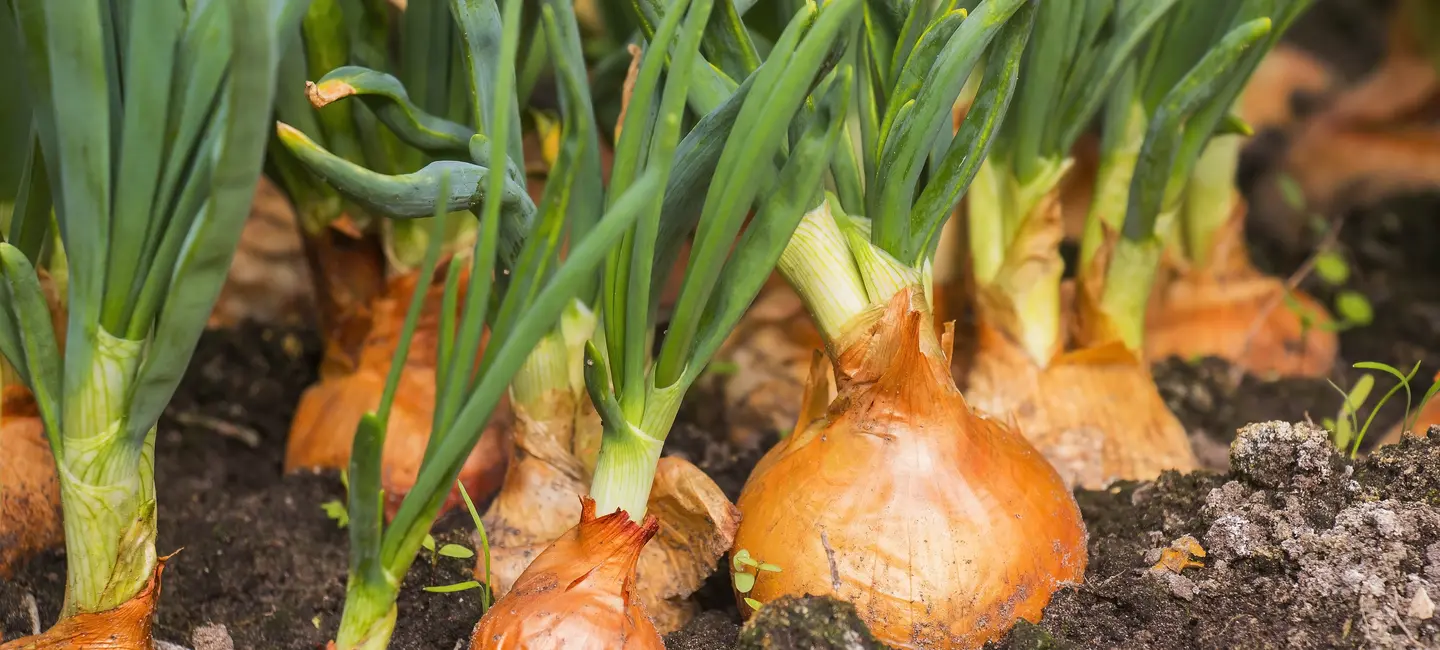
Onion (Allium cepa) is a plant that is grown worldwide. The onion bulb is commonly eaten as food. Onion bulb and extract are also used to make medicine.
Onion contains chemicals that seem to reduce swelling and lung tightness related to asthma. It also contains chemicals that seem to reduce cholesterol and lower blood sugar.
People use onion to prevent scarring. It is also used for obesity, hair loss, asthma, insomnia, high blood pressure. warts, and many other conditions, but there is no good scientific evidence to support these uses.
Is It Effective?
NatMed Pro rates effectiveness based on scientific evidence according to the following scale: Effective, Likely Effective, Possibly Effective, Possibly Ineffective, Likely Ineffective, Ineffective, and Insufficient Evidence to Rate.
- Scarring. Applying a gel containing onion extract to the skin, alone or with other ingredients, for at least 10 weeks seems to improve the appearance of scars. But it's not clear what combination of ingredients or dose works best.
- Obesity. Eating onion or taking onion extract by mouth doesn't reduce body weight in people who are overweight or obese.
There is interest in using onion for a number of other purposes, but there isn't enough reliable information to say whether it might be helpful.
Is it Safe?
When taken by mouth: Onion is commonly consumed in foods. Onion extract is possibly safe when used as medicine in doses up to 900 mg daily for up to 12 weeks. Side effects might include stomach pain and heartburn.
When applied to the skin: Onion extract is likely safe. Side effects might include skin irritation or eczema.
Special Precautions & Warnings:
Pregnancy and breast-feeding: Onion is commonly consumed in foods. But there isn't enough reliable information to know if onion is safe to use in larger amounts as medicine when pregnant or breast-feeding. Stay on the safe side and stick to food amounts.
Cross-allergens: People with allergies to mugwort and celery might also be allergic to onion.
Surgery to place a pouch near the anus (ileal pouch-anal anastomosis): People that have had surgery to place a pouch near the anus might find that onion increases feelings of gas. Don't eat large amounts of onion if you have had this surgery.
Indigestion: Onion might increase indigestion symptoms.
Surgery: Onion might slow blood clotting and lower blood sugar. This might increase the risk for bleeding or interfere with blood sugar control during and after surgical procedures. Stop using onion as a medicine at least 2 weeks before a scheduled surgery.
Aspirin
Interaction Rating=Moderate Be cautious with this combination.
Some people are allergic to onions. Aspirin might increase your sensitivity to onions if you are allergic to onions. This has only been reported in one person. But to be on the safe side, if you are allergic to onions do not take aspirin and eat onions.
Medications changed by the liver (Cytochrome P450 2E1 (CYP2E1) substrates)
Interaction Rating=Moderate Be cautious with this combination.
Some medications are changed and broken down by the liver. Onion might change how quickly the liver breaks down these medications. This could change the effects and side effects of these medications.
Medications for diabetes (Antidiabetes drugs)
Interaction Rating=Moderate Be cautious with this combination.
Onion might lower blood sugar levels. Taking onion along with diabetes medications might cause blood sugar to drop too low. Monitor your blood sugar closely.
Medications that slow blood clotting (Anticoagulant / Antiplatelet drugs)
Interaction Rating=Moderate Be cautious with this combination.
Onion might slow blood clotting. Taking onion along with medications that also slow blood clotting might increase the risk of bruising and bleeding.
Herbs and supplements that might lower blood sugar: Onion might lower blood sugar. Taking it with other supplements with similar effects might lower blood sugar too much. Examples of supplements with this effect include aloe, bitter melon, cassia cinnamon, chromium, and prickly pear cactus.
Herbs and supplements that might slow blood clotting: Onion might slow blood clotting and increase the risk of bleeding. Taking it with other supplements with similar effects might increase the risk of bleeding in some people. Examples of supplements with this effect include garlic, ginger, ginkgo, nattokinase, and Panax ginseng.
There are no known interactions with foods.
Onion is commonly consumed in foods. As medicine, there isn't enough reliable information to know what an appropriate dose of onion might be. Keep in mind that natural products are not always necessarily safe and dosages can be important. Be sure to follow relevant directions on product labels and consult a healthcare professional before using.
Allii Cepae Bulbus, Allium cepa, Cebolla, Échalote, Green Onion, Jeju Steamed Onion, Oignon, Oignon Vert, Onions, Palandu, Piyaj, Shallot.
Information on this website is for informational use only and is not intended to replace professional medical advice, diagnosis, or treatment. While evidence-based, it is not guaranteed to be error-free and is not intended to meet any particular user’s needs or requirements or to cover all possible uses, safety concerns, interactions, outcomes, or adverse effects. Always check with your doctor or other medical professional before making healthcare decisions (including taking any medication) and do not delay or disregard seeking medical advice or treatment based on any information displayed on this website.
© TRC Healthcare 2024. All rights reserved. Use and/or distribution is permitted only pursuant to a valid license or other permission from TRC Healthcare.
